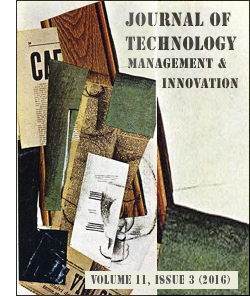Human Capital as Source of Innovativeness in Subsistence Small Businesses
DOI:
https://doi.org/10.4067/S0718-27242016000300007Keywords:
Innovativeness, human capital management, Subsistence small business, Latin-America, timber industry, dynamic capabilitiesAbstract
Subsistence small businesses (SSB) are very important in developing countries for reducing poverty. Companies in developing countries need innovation in order to compete, and innovation is particularly significant for SSBs, as they are usually less well-prepared for competition. Human capital is the key to improving the situation of poor countries as such human capital improves innovativeness in companies. Nevertheless, human capital is scarce in SSBs and these businesses possibly need the alignment of human capital with strategy to improve their performances. This alignment is achieved by exploiting the dynamic capabilities of human capital management. The aim of this paper is to analyse human capital management and innovativeness in SSBs in the timber industry in a region of Latin America using PLS techniques. The findings suggest that SSBs build human capital management and innovativeness as dynamic capabilities and use human capital management to improve innovativeness.Downloads
Download data is not yet available.
Downloads
Published
2016-10-11
How to Cite
Jardon, C. M. (2016). Human Capital as Source of Innovativeness in Subsistence Small Businesses. Journal of Technology Management & Innovation, 11(3), 59–66. https://doi.org/10.4067/S0718-27242016000300007
Issue
Section
Research Articles
License
Copyright (c) 2016 Journal of Technology Management & Innovation

This work is licensed under a Creative Commons Attribution-ShareAlike 4.0 International License.







